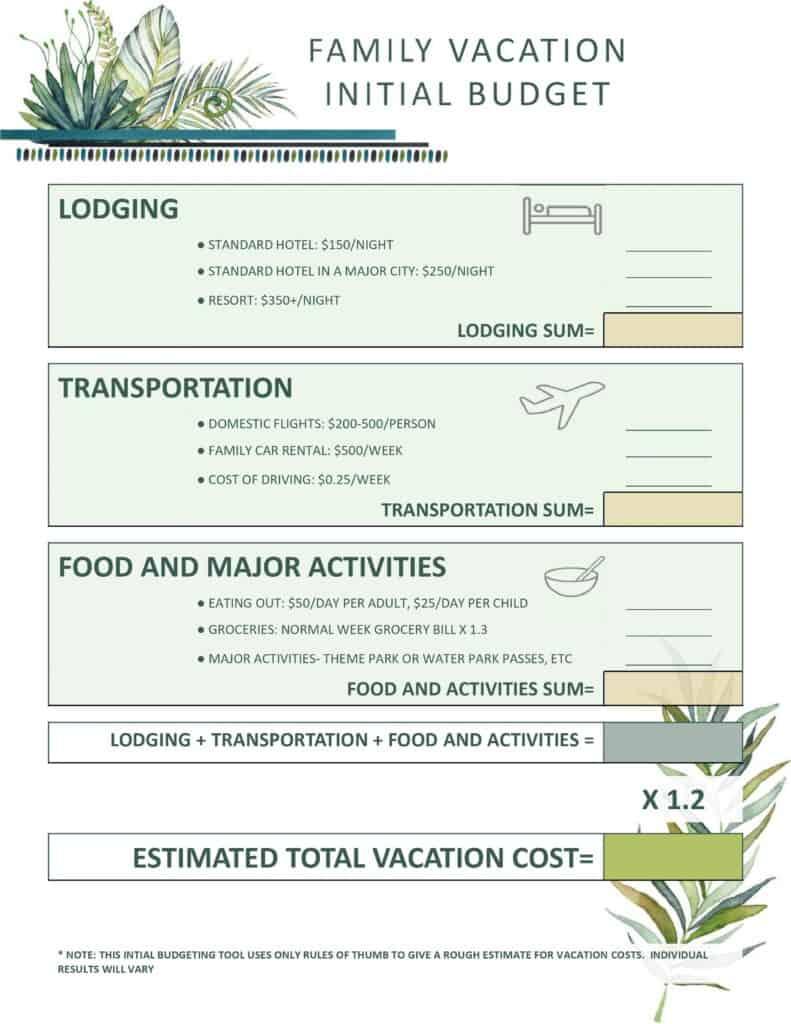
When planning a vacation, budget is often a primary consideration for many travelers. As the allure of escaping daily routines grows, the decision between a weekend getaway and a long vacation becomes more significant. Understanding the cost dynamics of these two options is crucial for making an informed choice. This article aims to dissect the financial aspects of weekend getaways compared to extended vacations, examining factors such as transportation, accommodation, and daily expenses. By exploring these elements, readers will gain a clearer perspective on which option might offer better value for their travel budget, helping them plan their next escape with confidence and financial prudence.
Evaluating the Cost Benefits of Short Trips Versus Extended Holidays
When considering the financial implications of short trips compared to extended holidays, several factors come into play. Short trips, often limited to weekends, can offer significant savings in certain areas. Travelers frequently benefit from reduced accommodation costs due to the brief duration and can take advantage of last-minute deals or promotions that are less feasible for longer stays. Moreover, weekend getaways often involve closer destinations, leading to savings on travel expenses such as flights or fuel. However, the potential for savings can be offset by the necessity to book more expensive flights or accommodations if the trip coincides with peak travel periods like public holidays.
On the other hand, extended vacations can present economies of scale that are not available with shorter trips. For instance, longer stays often lead to discounts on accommodation, with many hotels and rental properties offering reduced rates for week-long bookings or longer. Additionally, travelers on extended holidays have the luxury of time to explore cost-effective local transportation options and self-catering, which can substantially lower food expenses. However, it’s important to consider that longer vacations require more extensive planning, and unexpected costs can accumulate, potentially surpassing the budget of a series of well-planned weekend getaways. Balancing these aspects is key to determining which option is more cost-effective for individual circumstances.
- Pros of Weekend Getaways: Lower accommodation costs, potential for last-minute deals, closer destinations.
- Cons of Weekend Getaways: Potential peak travel surcharges, limited time for exploration.
- Pros of Extended Holidays: Accommodation discounts, cost-effective local travel, self-catering options.
- Cons of Extended Holidays: More extensive planning required, potential for accumulated unexpected costs.

Analyzing Accommodation and Transportation Expenses for Different Vacation Durations
When considering the costs associated with different vacation durations, both accommodation and transportation expenses play pivotal roles. Weekend getaways often benefit from last-minute deals and off-peak pricing, potentially making them more affordable on a per-day basis. However, the condensed nature of these trips means that fixed costs, such as flights or train tickets, may not significantly decrease with shorter durations. This is where flexibility in travel dates can greatly impact the overall expense.
- Accommodation: While short stays may take advantage of weekend discounts, extended vacations often allow for long-term rental deals or discounts for booking a week or more.
- Transportation: For longer vacations, the cost of travel can be spread over more days, reducing the daily expense. Conversely, short trips may involve higher per-day costs due to transportation being a larger percentage of the overall budget.
Ultimately, the decision between a weekend getaway and a longer vacation should consider these nuances in expense management. Careful planning and strategic booking can make either option financially viable, depending on one’s travel preferences and flexibility.

Maximizing Savings Through Strategic Weekend Getaway Planning
For those looking to get the most out of their travel budget, careful planning of short trips can be a game-changer. Here are a few strategies to consider:
- Travel During Off-Peak Times: Opt for weekends that fall outside of popular holiday seasons or major events to find the best deals on accommodation and transportation.
- Leverage Loyalty Programs: Utilize points or miles accumulated from frequent flyer programs or hotel memberships. These can significantly reduce the cost of your weekend adventures.
- Choose Budget-Friendly Destinations: Instead of heading to well-known tourist hotspots, explore lesser-known locales that offer unique experiences without the hefty price tag.
- Bundle Your Bookings: Look for package deals that combine flights, hotels, and activities, often available at a discounted rate when booked together.
By incorporating these tactics into your travel plans, you can enjoy enriching weekend escapes without breaking the bank, leaving room in your budget for more frequent adventures.

Practical Tips for Budget-Friendly Long Vacation Experiences
When planning a long vacation, the goal is often to enjoy an immersive experience without breaking the bank. Here are some practical tips to make your extended trip both memorable and affordable:
- Travel Off-Peak: Choose destinations that offer discounts during the off-peak seasons. This not only reduces costs on flights and accommodations but also allows you to explore without the usual crowds.
- Opt for Local Experiences: Immerse yourself in the culture by staying in locally-owned accommodations such as guesthouses or homestays. This often provides a more authentic experience at a fraction of the cost of hotels.
- Cook Your Own Meals: While sampling local cuisine is part of the travel experience, consider cooking some meals yourself. Visiting local markets for fresh ingredients can be an adventure in itself and significantly reduce dining expenses.
- Use Public Transportation: Save money by using local buses, trains, or bikes instead of taxis or rental cars. Public transport not only cuts costs but also gives you a chance to see the city like a local.
By implementing these strategies, you can extend your travels without stretching your budget, ensuring you get the most out of your long vacation.



